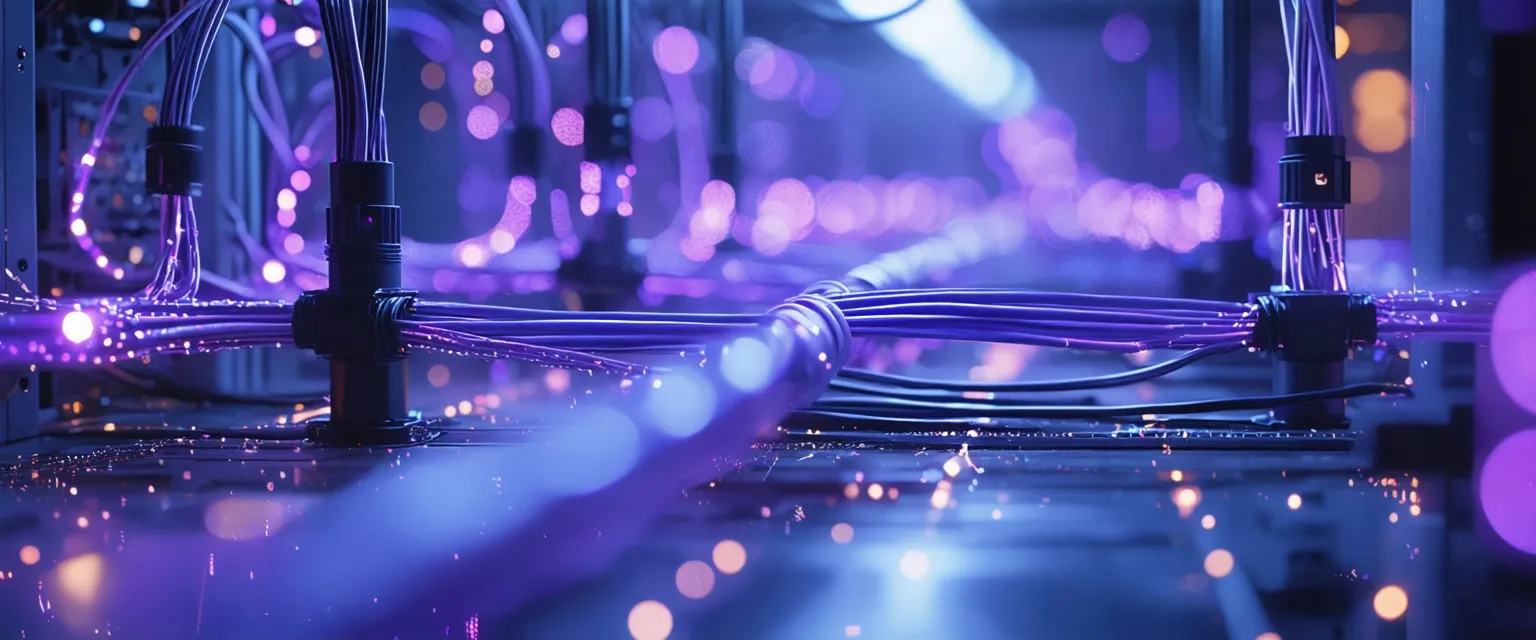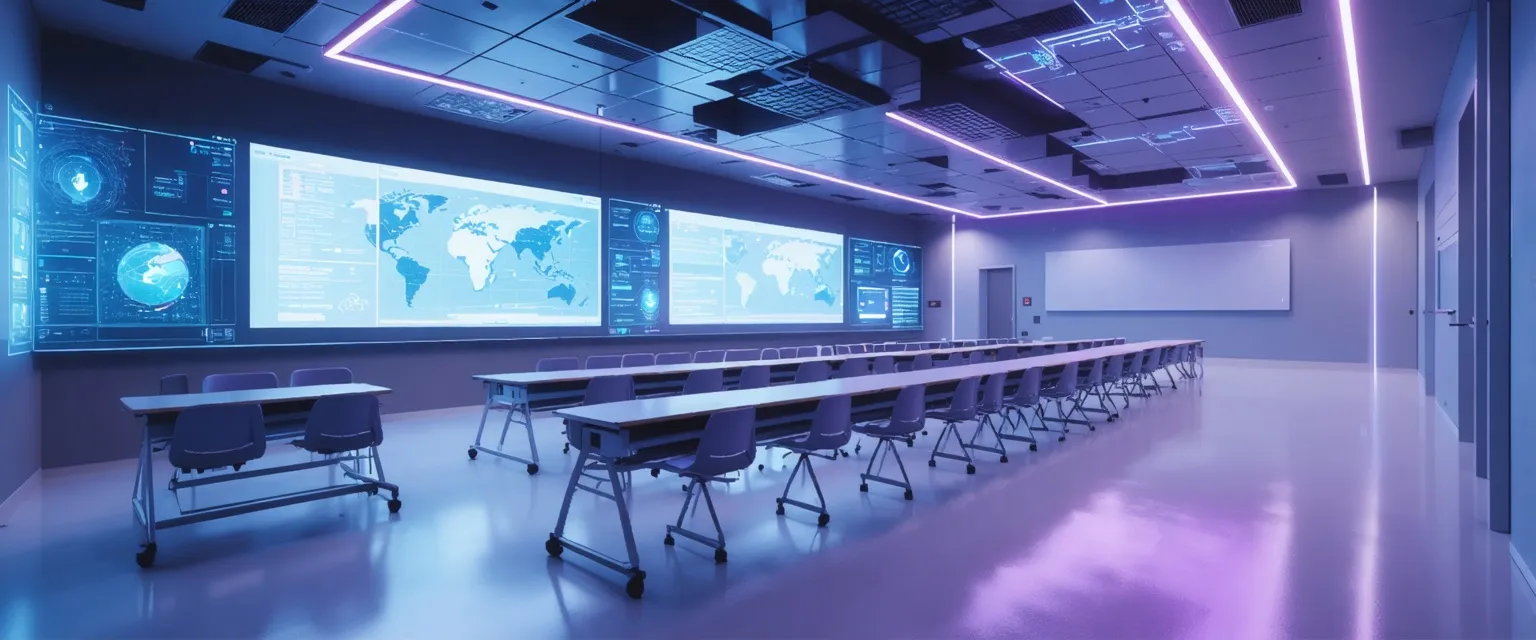The construction industry, valued at over $10 trillion, plays a critical role in global infrastructure, yet it has long struggled with stagnant productivity growth—averaging just 1% annually for decades. With global infrastructure demand surging and the sector expected to grow by 85% to $15.5 trillion by 2030, construction companies must adopt smarter, more efficient solutions to keep pace, including innovative AI solutions.
AI is emerging as a game-changer, optimizing project management, resource allocation, and cost control, similar to its impact in other sectors in optimizing performance. Studies show that digitization could increase industry market capitalization by $1.6 trillion annually, and AI’s role in construction is set to expand rapidly—from $496.4 million in 2021 to an estimated $8.6 billion by 2031, growing at a 34.1% CAGR.
By enhancing real-time decision-making, automating up to 30% of construction tasks, and integrating with emerging technologies like robotics, digital twins, and supply chain tools, AI tools are revolutionizing the construction landscape. As the industry moves toward a fully interconnected ecosystem of smart technologies, AI-driven solutions will be at the forefront—boosting efficiency, reducing costs, and driving the future of construction.
AI Technologies Powering Construction Innovation
Construction technology is revolutionizing industries by automating processes, enhancing decision-making, and optimizing efficiency—and construction is no exception. From predictive maintenance and site safety monitoring to real-time data analysis and automation, AI is helping companies streamline operations, reduce costs, and improve project outcomes.
Machine Learning: Predictive Insights for Smarter Operations
Machine learning enables systems to analyze vast datasets, identify patterns, and make data-driven predictions. In construction, it powers:
- Predictive maintenance – Identifying equipment failures before they occur to prevent costly downtime.
- Financial risk assessment – Improving credit risk models and optimizing project financing with AI financial infrastructure.
- Supply chain optimization – Enhancing inventory management and preventing material shortages.
Machine learning also enhances traditional construction processes by streamlining workflows through predictive analytics, automation, and real-time collaboration tools, leading to improved efficiency and reduced costs.
Computer Vision: Real-Time Monitoring and Quality Control
Computer vision, a key component of multimodal AI, gives machines the ability to interpret visual data, making it a powerful tool for construction site management. Applications include:
- Automated quality control – Detecting defects and ensuring compliance with safety standards.
- Site safety monitoring – Using computer vision technologies to monitor construction sites in real-time, identifying hazards such as workers not wearing protective gear, and providing immediate alerts to site managers to enhance overall safety compliance and reduce the risk of accidents.
- Real-time progress tracking – Comparing actual construction progress with project plans for greater accuracy and efficiency.
Natural Language Processing (NLP): Transforming Communication and Documentation
NLP enables machines to understand and generate human language, improving efficiency in documentation and communication. Key applications include:
- AI-driven customer support chatbots – Enhancing service responsiveness, similar to AI content moderation used in social media platforms.
- Automated contract analysis – Extracting critical information from project documents.
- AI-generated reports – Summarizing key insights from construction data for streamlined decision-making.
NLP tools also assist construction professionals in documentation and communication, ensuring accurate and efficient information exchange throughout the project lifecycle.
By integrating NLP, companies can create user-friendly AI interfaces that simplify access to complex data, improving adoption across teams.
Generative AI and Robotics: Redefining Automation and Precision
Generative AI is transforming how content is created, from automating design processes to generating optimized construction plans, thereby streamlining the entire construction process. Meanwhile, AI-powered robotics takes automation beyond routine tasks, incorporating adaptive learning for precision work in high-risk environments.
These advancements make construction more efficient, safer, and increasingly automated, paving the way for smarter, more resilient infrastructure projects.
AI in Construction Project Management: Driving Efficiency and Precision
AI is revolutionizing construction project management, bringing speed, accuracy, and data-driven insights to processes that were once slow, labor-intensive, and prone to human error. By optimizing resource allocation, enabling real-time decision-making, and automating critical tasks, AI is reshaping how construction projects are planned, executed, and completed.
Optimizing Resource Allocation for Maximum Efficiency
AI provides real-time insights into the best allocation of resources for specific tasks, ensuring that materials, equipment, and labor are used efficiently and cost-effectively. According to the 2023 International Conference on Advanced Computing, AI-driven resource allocation allows project managers to “make quick, informed decisions as the project progresses.”
AI also assists the project team in resource allocation, enabling them to focus on core functions while addressing various safety hazards and quality issues.
Predictive AI models can forecast demand fluctuations, material requirements, and workforce needs, reducing waste and preventing costly delays. By integrating AI into project workflows, construction companies can maintain agility in resource planning while maximizing productivity.
Real-Time Data Analytics for Smarter Decision-Making
AI’s ability to process vast amounts of construction data enables early detection of design flaws, inefficiencies, and potential risks before they escalate. Real-time analytics offer project managers immediate insights into project progress, while correlation analysis uncovers valuable relationships between seemingly unrelated metrics—helping teams identify patterns, improve forecasting, and refine decision-making through advanced AI analytics.
To maintain system performance under high data loads, effective data flow controls—such as API rate-limiting strategies—can be implemented. AI system monitoring tools further enhance operational efficiency by detecting and addressing potential issues in real time. Using generative AI solutions, companies can further enhance data analysis and decision-making processes.
Automation and Cost Reduction Through AI
By automating administrative and operational tasks, AI reduces project costs and streamlines workflows in the construction sector. Jaguar Land Rover, for example, saved over £1 million by automating more than 160 finance processes using AI and Robotic Process Automation (RPA), according to the Agile Business Consortium.
Additional AI-driven benefits include:
- Automated cost estimation – Reducing budget overruns with precise financial forecasting.
- AI-powered defect detection – Identifying construction flaws early to prevent expensive rework.
- Real-time project status tracking – Eliminating manual reporting and improving transparency.
- Automating customer management – Streamlining client interactions and improving satisfaction.
By integrating AI into project management, construction firms can drive operational efficiency, minimize risks, and accelerate project timelines—leading to more predictable, cost-effective, and high-quality builds.
AI Strategies for Reducing Costs in Construction
Predictive Maintenance
Instead of waiting for equipment to break, AI tells you when to schedule maintenance, which is particularly transformative in the construction sector. According to Deloitte, AI technologies in manufacturing can predict equipment failures and help cut maintenance costs by about 40%.
Caterpillar Inc. has installed sensors on machinery that constantly monitor temperature, vibration, and sound. AI algorithms then analyze this data to spot patterns that signal upcoming failures.
Supply Chain Optimization
AI manages complex supply chains effectively, utilizing techniques such as AI-enhanced routing to improve logistics and delivery times. McKinsey research shows that AI in supply chain management can reduce forecasting errors by 20-50%. Results? It decreases product unavailability by up to 65%, cuts warehousing costs by 5-10%, and administrative costs by 25-40%.
Workforce and Inventory Management
AI algorithms improve workforce management by predicting staffing needs accurately. Industries like telecommunications, electric power, and healthcare have used AI forecasting engines to automate about 50% of workforce-management tasks and achieved cost reductions of 10-15%.
For inventory management, AI analyzes historical data and market conditions to optimize stock levels. It reduces your tied-up capital in excess inventory and ensures availability when needed.
Overcoming AI Adoption Challenges in Construction
Integrating AI tools into construction operations offers tremendous efficiency and cost-saving benefits, but adoption comes with its own set of challenges. From high initial investments to integration complexities and workforce training, businesses must take a strategic approach to ensure successful implementation.
Managing Initial Investment Costs
Adopting AI requires specialized hardware, software platforms, and skilled talent. Hiring data scientists and machine learning engineers alone can cost around $100,000 to $110,000 per year in salaries. Additionally, companies must decide whether to build or buy API management tools as part of their AI infrastructure, which significantly impacts upfront expenses.
To optimize costs, organizations should consider:
- Cloud-based AI solutions – Reduce infrastructure overhead while maintaining scalability.
- Low-code AI platforms – Accelerate development while lowering dependency on specialized coding expertise.
- Strategic investment in API management – Weighing in-house development versus third-party solutions for long-term efficiency.
Navigating Integration Complexities
With 66% of construction companies already using project management tools, integrating AI requires careful planning—especially when dealing with legacy systems not designed for AI compatibility. Seamless integration demands:
- A clear API strategy – Understanding the role of API gateways for smooth system interoperability.
- Data security protocols – Adhering to API security best practices to enhance data privacy and protect sensitive project and client data during AI implementation.
- Custom AI infrastructure planning – Ensuring AI can interact with existing software without disrupting workflows.
In addition, understanding the AI transparency benefits can help foster trust and compliance when integrating AI systems.
Upskilling the Workforce for AI Adoption
AI implementation introduces new skill set requirements, from technical training to interpreting AI-generated insights and adjusting workflows accordingly. AI-driven learning platforms can help bridge the skills gap, offering personalized training experiences. Research shows that microlearning increases learning effectiveness by 60%, making it an ideal approach for introducing AI literacy in construction teams.
Strategic Implementation for AI Success
A structured approach ensures AI adoption is efficient, scalable, and cost-effective. Best practices include:
- Phased Implementation – Start with pilot projects targeting high-impact use cases.
- MLOps Adoption – Implement Machine Learning Operations (MLOps) to streamline AI deployment, automate monitoring, and control maintenance costs.
- Strategic Partnerships – Collaborate with AI experts to accelerate learning and minimize trial-and-error.
- Data Quality Focus – Establish robust data collection and validation processes to improve AI model accuracy.
Automating deployment processes—such as setting up a custom CI/CD pipeline—helps reduce manual effort and errors, making AI integration more efficient and scalable. Additionally, leveraging cloud-based AI solutions and hosted API gateways minimizes infrastructure overhead, ensuring companies can scale AI adoption while controlling costs.
By understanding these challenges and proactively implementing best practices, construction firms can successfully integrate AI to drive efficiency, reduce costs, and future-proof their operations.
The Future of AI in Construction: Automation, Precision, and Sustainability
The construction industry is undergoing a technological transformation, with AI driving automation, predictive intelligence, and sustainability in construction projects. As AI adoption accelerates, construction firms that integrate intelligent systems into their workflows will gain a competitive edge in efficiency, cost savings, and environmental responsibility.
Autonomous Machinery and Robotics: The Next Era of Construction
AI-powered autonomous vehicles and robotics are redefining construction operations, performing site inspections, material handling, and even complex building tasks with minimal human intervention. According to Boston Consulting Group, up to 30% of construction work could be automated by 2025, increasing both productivity and safety by reducing reliance on manual labor in high-risk environments.
Predictive Analytics: Smarter Decision-Making and Maintenance
AI-driven predictive analytics is revolutionizing budgeting, resource allocation, and project planning. By leveraging machine learning and historical data, construction managers can anticipate cost fluctuations, prevent delays, and optimize workforce distribution. McKinsey & Company predicts that AI-powered predictive analytics will fundamentally transform how engineering and construction firms approach bidding, execution, and project management.
Sustainable Construction: Building for a Greener Future
As the industry shifts toward sustainable practices, AI plays a critical role in optimizing material usage, reducing waste, and enhancing energy efficiency. AI-powered modeling tools can evaluate multiple design options to determine the most sustainable and cost-effective approach—helping firms meet environmental standards without compromising performance.
The future of AI in construction isn’t just about efficiency—it’s about creating a smarter, safer, and more sustainable industry. Companies that embrace AI-driven automation, predictive intelligence, and eco-friendly solutions will be at the forefront of the next generation of construction innovation.
How AI is Reshaping Construction for Key Stakeholders
AI in construction isn’t just about automation—it’s about delivering real business value to every stakeholder in the industry, including project teams. From contractors and project managers to small and medium enterprises (SMEs), AI enhances efficiency, cost savings, and decision-making, making construction smarter, safer, and more competitive.
How AI Empowers Contractors
AI serves as a strategic assistant that improves operational efficiency through:
- Predictive maintenance – Identifying potential equipment failures before they cause costly downtime.
- Automated task management – Streamlining project workflows for faster execution.
- Optimized resource allocation – Reducing waste and improving project budgeting.
According to McKinsey’s State of AI report, 50% of companies now use AI in at least one business function, reflecting its growing role in modern construction.
Enhancing Project Management with AI
For project managers, AI offers real-time insights that help:
- Predict and mitigate project delays by analyzing historical and real-time data.
- Improve efficiency by identifying bottlenecks before they escalate.
- Enhance decision-making with AI-driven analytics that optimize timelines and resource deployment.
AI as a Competitive Advantage for SMEs
AI levels the playing field for small and medium-sized enterprises (SMEs), enabling them to:
- Reduce costs through automation and optimized workflows.
- Increase revenue by improving project accuracy and execution speed.
- Enhance safety with AI-driven risk detection and monitoring systems.
A 2023 Statista study found that 4% of businesses reported at least a 20% cost reduction through AI adoption. By integrating AI into their operations, SMEs can compete more effectively in an industry traditionally dominated by larger firms.
As AI adoption grows, companies that embrace these innovations early will be the ones that streamline operations, maximize efficiency, and drive long-term success in construction.
AI in Construction: Unlocking Efficiency, Cost Savings, and Competitive Advantage
AI is not just enhancing the construction sector—it’s transforming it. By turning traditional processes into data-driven, intelligent systems, AI allows companies to optimize labor, reduce costs, improve safety, and streamline operations. A $500 million construction project could see savings of approximately $30 million simply by optimizing resource allocation and predictive maintenance.
However, successful AI integration requires strategic implementation. Companies must navigate challenges such as legacy system compatibility, data security, and the industry’s digital debt. Yet, for those who invest in AI wisely, the rewards are substantial—a McKinsey study found that AI-driven strategies help mitigate cost overruns and reduce overhead expenses, a critical edge in an industry known for its slim profit margins.
Tribe AI helps construction firms leverage AI for real, measurable impact. Our AI expertise network of specialists and industry experts works with businesses to design custom AI solutions that improve efficiency, reduce costs, and enhance project execution. Whether you’re looking to integrate AI into risk management, scheduling, or predictive analytics, we provide the expertise needed to drive innovation and maximize ROI.
The future of construction is AI-powered. Let’s build smarter, faster, and more profitably—together.













